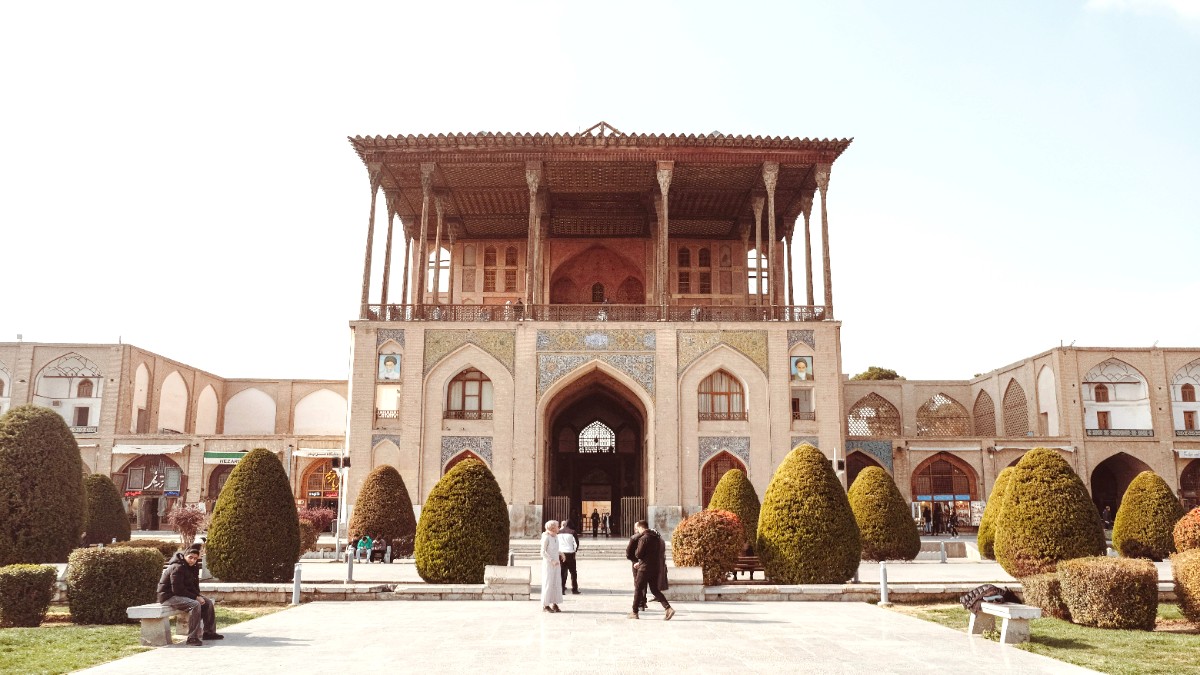
Central Iran, Iran
This guide provides practical information for your visit, helping you plan a trip to this historic destination. Esfahan's beauty goes beyond its monuments; it resides in the warmth of its people, the aroma of its spices, and the timeless rhythm of its bazaars.
Esfahan sits in central Iran, nestled within a plateau at an elevation of about 1,590 meters (5,217 feet) above sea level. The Zayandeh Rood river, a defining feature of the city, flows through it, spanned by beautiful historic bridges that draw crowds, especially in the evenings.
While the river often experiences dry periods, its presence shapes the city's character and scenic pathways for strolls. The surrounding landscape consists mostly of arid plains and low-lying mountains, giving way to desert a short distance from the city limits.
Esfahan boasts a long and layered history, with evidence of human settlement dating back to the Paleolithic period. Its most prominent rise came during the Safavid era (16th-18th centuries), when Shah Abbas I declared it the capital of his empire in 1598. This period marked a rebirth for the city, transforming it into one of the world's largest and most beautiful urban centers.
Shah Abbas' vision led to the construction of Naqsh-e Jahan Square, a masterpiece of urban planning and architecture, surrounded by the Imam Mosque, Sheikh Lotfollah Mosque, Ali Qapu Palace, and the Qeysarieh Portal leading to the Grand Bazaar. These structures showcase the pinnacle of Safavid art and design. Before the Safavids, Esfahan served as the capital under the Seljuks in the 11th and 12th centuries, leaving behind monuments like the Jameh Mosque.
Central Iran, Isfahan Province
Approx. 1,590 meters (5,217 feet)
Cold Desert Climate
Iranian Rial (IRR), Toman commonly used
Persian (Farsi)
Over centuries, Esfahan absorbed influences from various dynasties and cultures, each adding to its unique architectural and artistic heritage. The city’s historic bridges, schools, and traditional houses further highlight its enduring legacy as a center of commerce, art, and intellectual pursuit along the Silk Road.
The Jameh Mosque, an UNESCO World Heritage site, displays a continuous architectural evolution over more than 12 centuries, showing the influences of various rulers and styles. Esfahan's historic bridges, theological schools, and traditional houses further highlight its enduring legacy as a center of commerce, art, and intellectual pursuit along the ancient Silk Road.
The city was a crossroads of trade and ideas, attracting scholars, artists, and merchants from across the globe. Its architecture reflects this convergence of influences. The dry air and open skies offer clear views, especially at dawn and dusk, painting the historic architecture in soft, inviting light.
This central location also renders convenient access to Iran's other major tourist cities, rendering it a popular stop on many travel itineraries across the country.
Prepare for a journey that promises not just sightseeing, but a profound understanding of Persian culture. The experiences here often lead to personal insights and lasting memories. A well-planned trip enhances your exploration.
Immerse yourself in local traditions and the warmth of the people.
Explore masterpieces of Islamic and Persian art and design.
Practical advice for easy navigation and a comfortable visit.
A good trip to Esfahan begins with careful preparation.